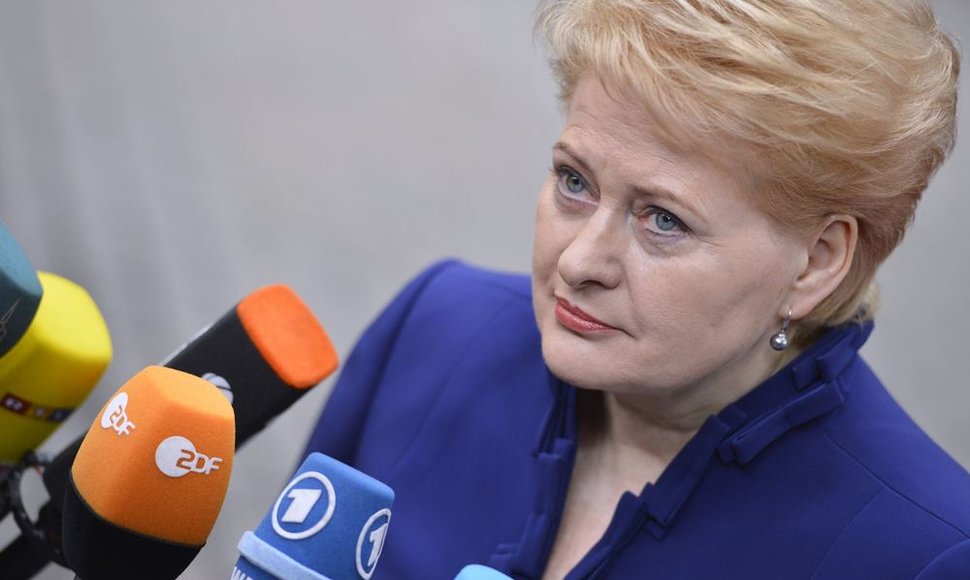"The world is divided. World's largest powers are not capable to agree among themselves. Syria needs to be helped, not to be sanctioned or attacked, on both sides," Grybauskaitė told reporters in the Belgian capital.
Asked about how this could be achieved, the Lithuanian leader replied: "How? Don't ask me, I am not the largest power in the world."
In her English-language interview, Grybauskaitė said that sanctions had not been efficient anywhere in the world.
"Any sanctions – whatever we have introduced before in any point of the world - usually don't work very well, mainly because both sides are suffering and so are the people of Syria," said Grybauskaitė whose comments to journalists were published on the official website of the European Council.
The situation in Syria is high on the agenda of the European Council meeting on Friday. Draft conclusions express deep concern with the worsening situation in Syria and approve the measures against the regime of President Bashar al Assad approved on the ministerial level earlier this week.
EU foreign ministers decided on Monday to take measures against 28 Syrian citizens and two companies and freeze their accounts and ban entry to the EU.
The latest addition expanded the list of individuals subjected to EU sanctions to 181, and the black list of blacklisted now includes 54 firms.
The new instruments include a ban for EU citizens from buying commodities from Syrian companies or importing them, if the companies ship weapons. Any assistance to such companies is also prohibited.
The 19-month conflict in Syria has already claimed more than 34,000 lives.












